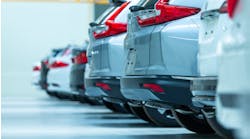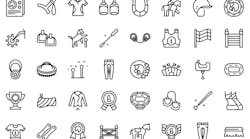Nov. 8, 2013—The Collision Industry Conference (CIC) Standards Committee on Wednesday held a panel discussion on the topic of repair standards.
The discussion, which was moderated by Standards Committe Vice Chairman Paul Krauss of Craftsman Auto Body, questioned an eight-person group of panelists on a variety of issues related to repair standards, including specialization, the impact on repair costs, third-party involvement and whether a need exists for an industry body to manage standards.
The panel consisted of the following individuals:
Barry Dorn of Dorn’s Body and Paint and current president of the Washington Metropolitan Auto Body Association
Lillian Maimone of Marco’s Auto Body
Doug Craig of Chrysler Service Engineering
Rick Leos of Toyota Motor Sales
Mike LeVasseur of Keenan Auto Body
Jim Thompson of the American National Standards Institute
Tim Adelmann of ABRA Collision & Glass
Randy Stabler of Pride Auto Body
The first topic of discussion was on whether repair facilities of the future would be specialized by type. The general consensus of the panel was that any segmenting of the industry would have to occur at the urging of either the repairers themselves or the public. When posed with the question of whether standardization within the repair process would lead to increased repair costs, the majority of panelists agreed that this would be a probable occurrence.
Panelists were also in agreement that third-party verification of repair facilities and technicians is an important part of any business model, though it was noted that repairers should be cognizant of the need to keep any validation practices objective and out-of-house.
When asked if an industry body should be created to manage all aspects of repair like CIECA, Dorn said an initiative of this kind could be unattainable, based on feedback from shops in the U.K., where standards are in place.
"First of all, I think CIECA has done a phenomenal job at what they do," Dorn said. "But frankly, the multitude of shops and associations we spoke to, ranging from the small to the MSO and everywhere in between, said in terms of leveling the playing field, that's not the case. Those folks told us that it didn't necessarily solve anything. Those who made the investment and went through the processes experienced their reimbursement rates going up for a time, followed by the carriers shifting the work to shops that did not adhere to those same standards.”
When asked how standardization efforts could best move forward to serve the industry, panelists said that an economic advantage must be present to provide an incentive toward change of this nature.
Following the discussion, the floor was opened up to questions and comments from the CIC body. During the discussion, Ron Reichen, chairman of the Society of Collision Repair Specialists, noted that the collision repair industry is in the minority of high-liability industries that are not held to adherence and policing of generally-accepted standards.
"Are standards needed in this industry? Absolutely," Reichen said. "Numerous industries are already held to standards of training, licensing and general business practices, such as the medical field, food service industry and even skilled labor fields like plumbing and electrical repair. In many cases, these industries are self-policing. To consider that the collision repair industry—which operates with as high of a level of liability as we do—is neither required to follow certain standards of operation nor held accountable for violating them is absurd to me.”


